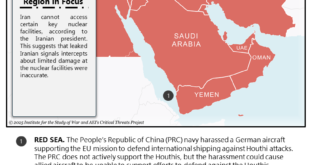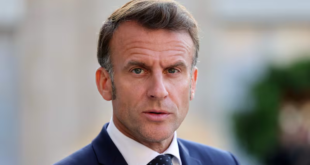As Bosnia vows moves closer to NATO membership, the President of Republika Srpska, Milorad Dodik, said a referendum needs to be held first on the issue.Milorad Dodik said in Banja Luka on February 11 that if Bosnia wants to join the NATO alliance, a referendum will have to be held first in the Serb-led entity.
“Our policy is based on the fact that we cannot support any political decision reached by a narrow group of people, and citizens must express their opinion about it,” Dodik said on Monday on his return from a visit to Russia.
Dodik recalled that a popular vote on the issue would follow the practice of other countries when it came to joining the alliance.
“The Republika Srpska will undoubtedly be moving towards this goal [of a referendum], as earlier agreed by all major political factors here,” he added.
Most Serbs oppose joining the alliance, owing to its role in the bombing campaign against Serbia in 1999.
Dodik also spoke about the implementation of the 2009 Sejdic and Finci human rights ruling, which is impeding Bosnia’s EU integration process, saying that Republika Srpska agreed on the need to eliminate discrimination.
The ruling of the Court of Human Rights in Strasbourg told Bosnia to alter its constitution to allow minorities to run for top posts that are currently reserved for Bosniaks [Muslims], Serbs and Croats.
After complaining that “foreigners [were] taking things in their own hands again, trying to create models”, he added that “nothing can be done without our will, and our will is to accept the elimination of discrimination… when it comes to the Sejdic-Finci ruling.”
Dodik said that while the Republika Srpska wanted to move towards Europe, this had to be done in accordance with Bosnia’s constitution, agreed at Dayton Ohio in 1995 and not at the expense of the Serb entity’s autonomy.
“That is how we have reached the process of EU integration in Bosnia”, he said.
“A couple of months ago the EU financed a study stating that 70 per cent of the competences for [Bosnia’s] EU path lie with entities, in our hands, and we do not want to lose that, but strengthen it,” he said.
“The ultimate goal of our movement towards the EU is strengthening our autonomy,” he added.
Dodik noted that Russia – Serbia’s main great power ally – strongly supported the 1995 Dayton Accords, which created the two autonomous entities in Bosnia and Herzegovina.
Russia objected to any violations of the accord and also supported the closure of the Office of the High Representative, OHR, the main international overseer of Bosnia. [Bosnian Serbs have clashed repeatedly with the OHR.]
Dodik said that his latest visit to Russia proved the success of Republika Srpska’s cooperation with Russia and had confirmed earlier agreements on important projects, primarily in the oil industry.
“It confirmed that construction of the gas pipe line through Republika Srpska represented an integral part of [the Russian] South Stream gas pipeline, of which I was informed by the Russian Energy Minister one day prior to my trip to Russia,” Dodik said.
The Republika Srpska needed to continue preparing for the construction of this major Russian energy project through the entity, he continued.
The dynamics stipulate signing an agreement on construction by the end of May between the Republika Srpska and Russia and a cooperation agreement, which would probably require certain harmonisation with institutions of Bosnia and Herzegovina, he concluded.
 Eurasia Press & News
Eurasia Press & News


